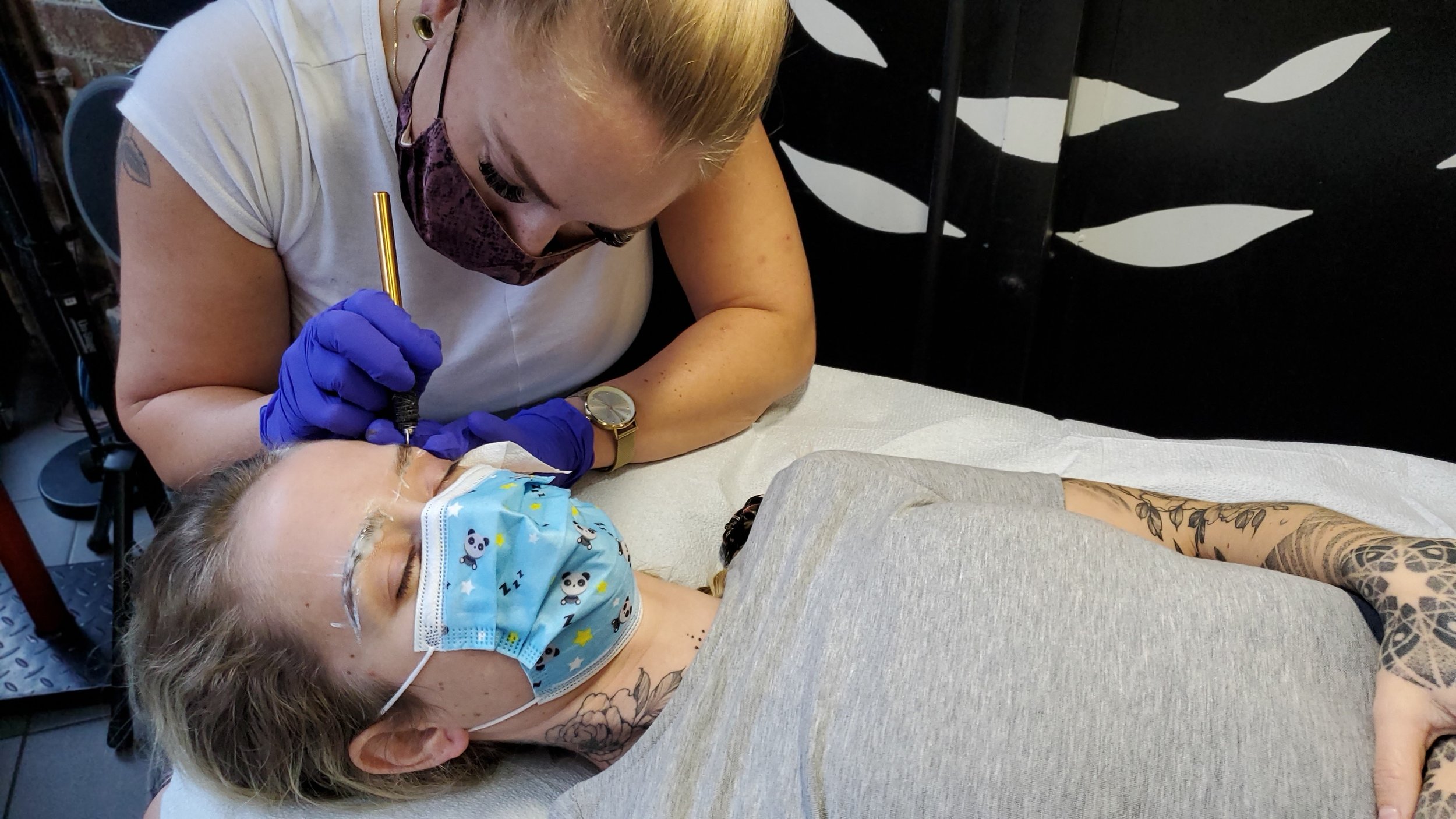TO USE numbing cream… or NOT TO USE numbing cream? That is the question!
You’ve booked a tattoo appointment, once the adrenaline finally settles down you think, what about the pain? Am I going to be able to sit through this? Then a light bulb moment... numbing cream, why not?
To find out more, I sat down with some of the artists at Liquid Amber Tattoo and asked them to chime in on the pro’s and con’s of numbing cream.
Peach - “Miranda, you have been tattooing for over 11 years, and in that time you’ve come across numbing cream, no doubt. But I hear you don't love using it on clients. Why is that?”
Miranda - “In 98% of cases I would not use it. Numbing cream usually uses epinephrine (most commonly known as adrenaline) or a similar ingredient to keep the lidocaine (the active numbing ingredient), localized. This constricts the cells making it harder for the lidocaine to flow out of the area. It also makes it harder to push ink between those skin cells. The tissue becomes more difficult to saturate.
Another con on numbing cream is it takes longer to tattoo the person which, in my opinion, negates the purpose of the numbing cream. I would only use it on a case by case basis for clients with very sensitive scarring or other issues, and we would have to have a conversation about it prior to their appointment.”
Next I spoke to Amelia Vogan, who has been working in the cosmetic tattoo industry since 2015 and in the last year began tattooing full time.
Peach - “Will you use numbing cream for your tattooing process, Amelia?”
Amelia - “For cosmetic tattoo clients, the benefits outweigh the cons. For “regular” tattoo clients, I will ask them not to use numbing cream as it compromises the tattoo. If they insist on using numbing cream, in some cases I won’t offer a free touch up. Numbing cream is a vasoconstrictor (the narrowing of blood vessels by small muscles in their walls) and depletes blood cells to the area. This comprises the skin and makes it an alien texture which is hard to ensure the safety and the outcome for the client.”
Amelia Vogan microblading eyebrows with numbing cream
Peach - “If and when you do use numbing cream, do you have one you suggest?”
Amelia - “Zensa and Dr Numb are the same formula, I use them in cosmetic tattooing only as they alter the skin.”
I asked shop owner Justina Kervel her thoughts on numbing cream. She’s been tattooing for over 20 years so I wondered if she would have anything else to add to this topic?
Justina - “When the numbing cream wears off it can be pretty shocking for the client as their body hasn’t built up that good endorphins release.”
Miranda and Amelia both agreed with this point and also said that once the pain hits, the clients generally tap out sooner as it's too much pain all at once.
Lastly, I spoke with Ashley Horncastle, a neo-traditional artist with over 10 years experience who does a lot of coverups and reworks of tattoos
Peach - “What are your thoughts on numbing cream for tattoos, Ashley?”
Ashley - “I'll work on people who use numbing cream, but would like for them to give me a heads up if they plan to use it. As Miranda and Amelia said, sometimes the skin gets rubbery from it and the tattoo could take longer.”
Peach - “Any reason why you would use numbing cream for someone? Such as the placement of their tattoo perhaps?”
Ashley - “Some people do just have a naturally low pain tolerance, or if it's a really small tattoo on a spicy spot. The numbing cream generally doesn't last too long though so after maybe an hour or so they'll start to feel it.”
All in all, it looks like these artists would prefer to NOT use numbing cream. Of course, every situation is different! So, if you are curious about using numbing cream, have a conversation with your artist. Ask them about how it can affect the healing process, prolong your appointment and potentially make it harder to be tattooed. Thanks for reading!

